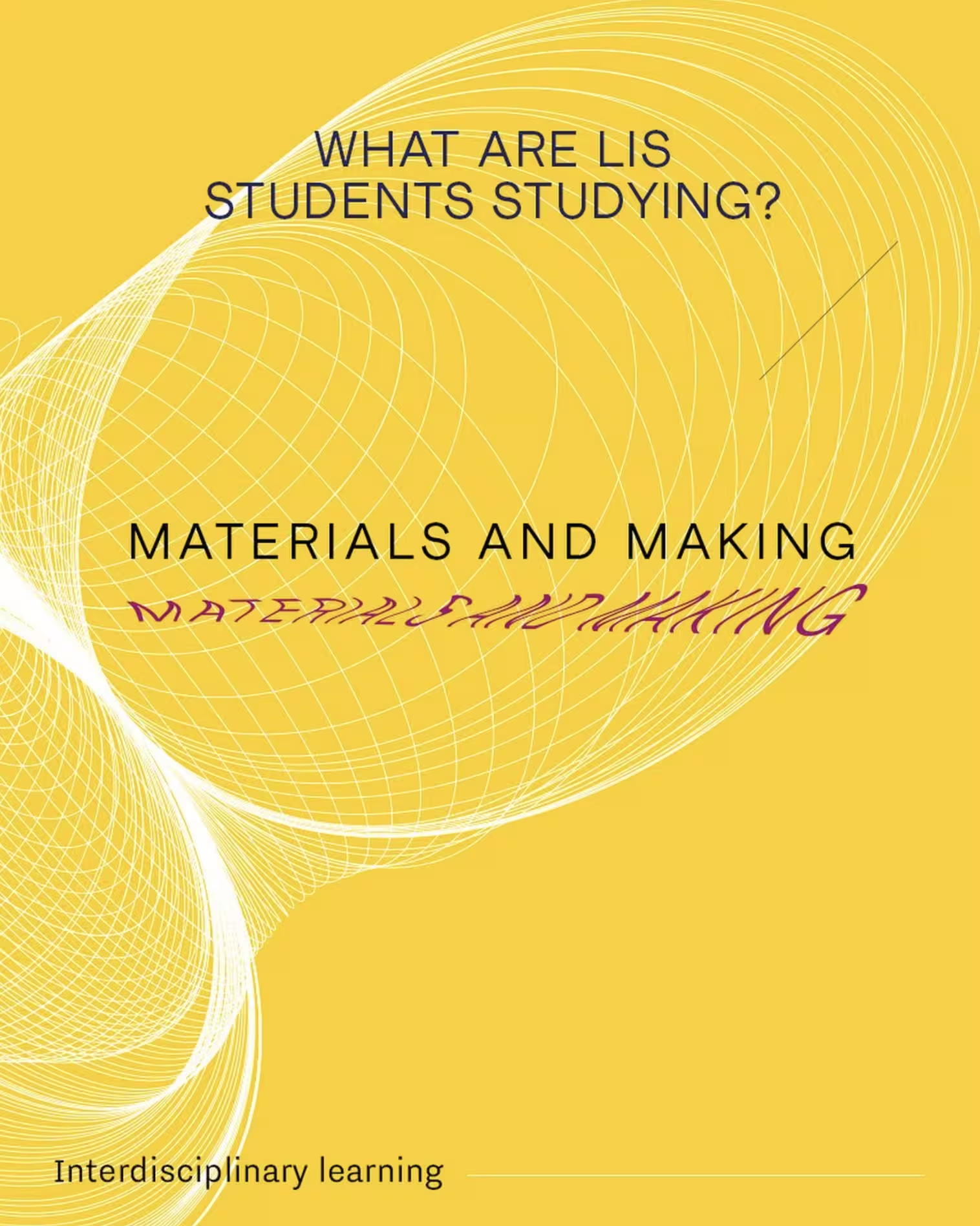The Main Difference Between Honours and Master's Degrees

An honours degree is an excellent choice for students who want to gain an entry-level academic qualification that makes it easier to join the workforce or transition to a new career. A master's degree is ideal if you hold an undergraduate degree and wish to enhance your skills and knowledge to an expert level. This is the primary difference between honours and master's programmes.
However, there are many factors to consider when choosing the best option for your career.

At LIS, our MASc degree is an excellent solution for students who want to become expert problem-solvers and tailor their learning experiences beyond what traditional degrees allow. We promote fair admissions and consider students from all backgrounds.
This guide explores the difference between honours and master's degrees, the benefits and challenges of each option, and how to choose the right path for you.
Table of Contents:
- What Is an Honours Degree?
- The Benefits of an Honours Degree
- The Challenges of an Honours Degree
- What Is a Master's Degree?
- The Benefits of a Master's Degree
- The Challenges of a Master's Degree
- Difference Between Honours and Master's Degree: A Side-by-Side Comparison
- How LIS Bridges the Gap with Interdisciplinary Master's Programmes
- How to Choose Between a Master's and an Honours Degree?
- Choose the LIS Master's Degree for Interdisciplinary Studies
An honours degree is a first degree, usually three years in duration, that helps you gain foundational skills in your field of interest. These degrees are structured with lectures, coursework, and often a research project to help prepare you for entry-level jobs or to make a career switch.
An honours degree makes it easier to enter the workforce – for many roles, they are a requirement, as it shows employers that you have the skills and commitment to succeed.
These degree programmes are also a pathway to advanced education, such as a master's or doctoral degree.
Entry Requirements and Common Fields of Study for Honours Degrees
Here are the standard honours degree requirements:
- GCSE or equivalent in English and Mathematics
- A-level or equivalent qualifications in relevant subjects
Some universities and colleges may also consider work experience or your personal statement when applying to study these degrees. Honours programmes cover various fields, from arts and sciences to business and engineering. These qualifications will improve your job prospects and provide a solid foundation to further your studies.

There are many reasons why an honours degree is an excellent choice for students. Here are a few of the advantages of this qualification and how it can help you progress your career:
- Stronger Academic Foundation: These degrees equip you with the basic skills and knowledge you need for most careers. In other words, you’ll have what you need to apply for entry-level positions and work up the career ladder.
- Research Experience: One of the primary features of an honours degree is the research component. You can advance your research skills through an independent dissertation project.
- Improved Career Prospects: An honours degree title makes you more competitive in the job market. You may find it easier to secure higher-paying entry-level jobs than you would without any undergraduate qualification.
- Pathway to Postgraduate Study: Completing an honours programme makes you a better candidate for a master's or doctoral degree. This qualification prepares students for advanced academic work and research required in postgraduate degrees.
- Networking and Academic Community: While completing your honours programme, you can network with fellow students who share your interests and potential employers through internships and mentorships.
While an honours degree offers so many advantages to help you achieve your career goals, there are a few drawbacks to consider:
- Increased Academic Workload: An honours degree is intensive and complex, including assignments and exams which may be challenging for students who are not ready to commit.
- Higher Expectations: Balancing all the requirements and deadlines while maintaining high grades can become overwhelming.
- Limited Flexibility: Depending on your programme, the honours curriculum may be quite structured, leaving less room for electives or exploring unrelated interests.
- Uncertain Career Return: While an honours degree can help you progress your career, it is not guaranteed that you'll find higher-level positions than you would without one or with only professional experience.
A master's degree is a postgraduate qualification designed for in-depth, specialised study in a specific subject. Master's programmes typically last one to two years and can take several forms, ranging from Master of Arts (MA) and Master of Science (MSc) to research-focused degrees like the MRes or professional qualifications such as an MBA.
People pursue a master's degree to acquire advanced skills, transition into a new career, or prepare for research and academic roles. It's a great option if you want to become an expert in your field or boost your career prospects.
Here are a few examples of different types of master's degrees:
- Master of Arts (MA): Primarily in humanities, social sciences, and liberal arts.
- Master of Science (MSc): Focuses on scientific, technical, and quantitative subjects.
- Master of Research (MRes): A research-intensive master's degree for those pursuing a PhD or research-based careers.
- Master of Business Administration (MBA): These degrees explore business, management, and leadership.
Entry Requirements and Common Fields of Study for Master's Degrees
The entry requirements for a master's degree primarily depend on what type of master's programme you want to study. These are general requirements if you wish to apply for a master's qualification in the UK:
- Undergraduate Degree: Typically a 2:1 or higher, in a related field to the master's programme.
- Grade Point Average (GPA): Equivalent to a 2:1 classification (or about 3.0 on a 4.0 scale).
- English Language Proficiency: You need a specific score depending on the English test you take.
- Personal Statement: A letter that outlines your motivations, academic interests, and career goals.
- References/Recommendation Letters: Two academic references (one academic, one professional for specific programmes).
- CV/Resume: Detailing academic background, work experience, and skills.
- Entrance Exams (if required): GMAT and GRE (specific to certain programmes like MBA).
You can pursue a master's degree in any field of study, as this qualification allows you to specialise in your desired field.

These are the top benefits of completing a master's programme and how it impacts your professional goals.
- Advanced Knowledge and Specialisation: A master's degree covers advanced studies to help you become an expert. You'll know how to solve complex problems and develop cutting-edge solutions.
- Improved Career Opportunities: Achieving a master's degree is a surefire way to secure better job opportunities, higher salaries and promotions. With expert critical thinking and analytical skills, employers will find you more valuable to their businesses.
- Pathway to Doctoral Studies: If completing a doctoral degree is part of your academic and professional goals, a master's degree will put you on the right path.
- International Recognition and Mobility: Earning a master's degree from world-recognised institutions will boost your career mobility.
- Opportunity for Career Change: If you want to consider different career paths instead of staying in the same field, a master's degree can help you achieve this. You'll have the necessary credentials to make this transition easier.
These are a few challenges of pursuing a master's degree and what to consider in your learning experience.
- Intense Academic Workload: Postgraduate courses, such as a master's degree, have intensive workloads and come with numerous expectations and academic pressure. Students must know how to manage their workloads and leverage resources to get the needed support.
- Balancing Professional and Academic Life: While master's degrees can be flexible, many students have professional and personal commitments to focus on during their studies. This can make balancing your professional, personal, and academic expectations challenging.
- Pressure to Contribute Original Research: A master's degree focuses on original research, whereas an honours or bachelor's degree allows you to explore existing research. Conducting your research can be highly intimidating, requiring critical thinking and perseverance.
- Financial Burden and Opportunity Cost: Master's programmes can be expensive, and the time it takes to complete your studies may detract from your earning potential.

Here's a detailed overview of an honours vs. a master's degree to help you decide which academic path works best.
Academic Level and Qualification Framework
An honours degree is considered an undergraduate qualification, which is level 6 in the UK. On the other hand, a master's degree is a postgraduate qualification, level 7 in the UK.
An honours degree is the best choice if you want foundational knowledge and skills to get started in the workforce. However, if you want a high-level qualification to help you become an industry expert, pursuing a master's degree is a good option.
Programme Duration and Structure
To complete an honours qualification, your program will cover lectures, coursework and practical learning. These degrees also include a capstone project or honours thesis during your final year of study, allowing you to demonstrate the quantitative and qualitative skills you’ve learned.
In contrast, a master's degree typically requires one to two years of full-time study. It involves a more comprehensive structure, including advanced coursework with a significant research component. Master's programmes offer more specialised learning compared to an honours degree. These qualifications require advanced research and practical skills, making them much more intensive than honours degrees.
Research Focus and Methodology
An honours degree typically includes a research project or dissertation that is less complex than the research in a master's programme. Research for an honours degree focuses on demonstrating your ability to carry out independent work. In contrast, in a master's degree, students are expected to contribute new knowledge, methods, or findings to their field.
Master's programmes generally require students to take a sophisticated approach to research, often with greater expectations for critical analysis and original thought. In many programmes, students must design research questions, collect data, and analyse findings comprehensively and methodically.
Flexibility
An honours degree is more structured with a defined curriculum. While there may be some flexibility within elective courses, honours students typically follow a rigid structure of what they will learn.
However, a master's degree is often more flexible, especially regarding course options, research focus, and specialisation. Some programmes, such as an MBA, may have a structured core curriculum, but many allow students to tailor their studies with elective modules, research projects, and internships.
Cost and Financial Considerations
Honours degrees are less expensive than master's qualifications. Many students can fund these programmes with undergraduate student loans or financial aid.
Master's degrees, however, can be more expensive. The tuition cost varies greatly depending on the institution, programme, and whether the student is an international student. Master's students typically need to budget for higher tuition fees and other associated costs, such as research expenses, resources, or travel for fieldwork. However, many universities offer scholarships, fellowships, and other funding opportunities for postgraduate study.
Career Pathways and Postgraduate Goals
You can enter entry-level positions in your chosen field with an honours qualification. These programmes provide a foundation to progress your studies through a master's degree or other postgraduate qualifications. You'll also find it easier to progress into professional roles, but you won’t qualify for specialised roles.
A master's degree, on the other hand, is generally considered an academic achievement that can help you secure higher-level careers. Graduates with a master's degree are often equipped with the knowledge and skills required for advanced professional roles, including managerial, leadership, or research positions.
Master's degree holders are also better positioned to pursue academic careers, such as becoming university professors or researchers, or highly specialised roles in finance, healthcare, engineering, or technology industries.
LIS’s MASc degree is a great choice to gain advanced knowledge in interdisciplinary expertise.
Real-World Learning Beyond Traditional Boundaries
Traditional master's degrees specialise in one subject, allowing students to become industry experts. However, our MASc degree at LIS is interdisciplinary, helping you develop unique solutions to complex problems. Our master’s graduates personalise their learning experiences by selecting courses that align with their interests and how to apply quantitative and qualitative methods to become expert problem-solvers.
These are two compulsory core modules in our MASc degree:
- Complexity: Students learn complexity in quantitative sciences, including concepts from cellular automata, dynamical systems, and information theory.
- Integration: Understand how novel and synthetic results can be achieved by integrating different bodies of knowledge.
Students can choose four out of five method modules:
- Experimental Methods: Find out how to read and think like a scientist.
- Re:Form: Understand techniques to manipulate visual media.
- Cracking the Code: Learn programming and data science skills.
- The Right Word: Analyse and create impactful language through storytelling, linguistics, and natural language processing (NLP).
- Everything Counts: Study probability, statistics, and numerical estimation.
Select one out of three problem electives:
- AI Futures: This module covers technics, ethics, and aesthetics.
- Designing for Life: Understand what it means to live within planetary boundaries.
- Acting Human: Study cultural technology and human action.
Flexibility for Students from Diverse Undergraduate Backgrounds
Our MASc programme offers flexibility to students from diverse backgrounds. We provide opportunities for students who don't hold a bachelor's or honours degree but may possess other relevant academic qualifications or professional experience.
We evaluate every application on a case-by-case basis because we recognise that every student is unique, and our team is dedicated to maintaining a fair admissions system.
Here's an overview of our admission process:
- Apply: Complete your application via our website.
- Submit your Critical Reflection: Write a 500 to 750-word Critical Reflection where you choose a problem or phenomenon you're passionate about and explain how an interdisciplinary approach will solve it.
- Receive Your Offer: We let applicants know the outcome of their applications four weeks after submission.
- Accept Your Offer: You can attend on-campus and live events to get more information before accepting our offer.
- Enrol: Start your learning experience.
Financial and Career Resources
At LIS, we understand how intensive and overwhelming studying for your master's degree can be, so we provide all the resources you need to excel. We also offer one-on-one career support; our team will help you showcase your skills, develop your career narrative, and gain insight into the expertise that most interests you.

In addition, we provide financial resources to help you pay the tuition fees for our MASc degree:
UK Students
- Full-time: £14,000 / a year
- Part-time: £7,000 / a year for two years
International Students
- Full-time: £25,000 / a year
- Part-time: £7,000 / a year for two years
Here's a glance at the financial support options available:
- Financial support bursary: We offer a bursary awarded on a case-by-case for students facing economic hardship.
- Scholarship: Eligible students can apply for our MASc Innovation Scholarship, which awards up to £5,000 towards their tuition fees.

Choosing between a master's degree and an honours degree is tricky. Here are a few factors to help you make the best choice for your professional and academic goals.
Your Academic Background
An honours degree is best to gain foundational skills to enter the workforce or improve your knowledge and qualifications before applying for postgraduate studies. However, if you already have a solid undergraduate foundation or extensive work experience, you may be ready to pursue a master's degree.
Your Career Goals
Consider your professional goals and what qualifications you need to achieve them. Do you want to secure leadership positions or change careers? A master's degree can help you achieve this, provided you have the relevant qualifications and experience. However, an honours degree is better if you lack professional experience and need an entry-level job.
Time and Financial Considerations
While an honours degree requires more years of study than a master’s programme, these pathways are often more affordable. A master's degree lasts one to two years and is more expensive than an honours degree because it equips students with expert knowledge and skills.
Interest in Research
An honours degree works best for you if you're interested in research but prefer a more structured approach. These programmes have a research component through structured methodology rather than having you work independently, like in a master's degree. On the other hand, if you're passionate about in-depth and original research and want to work independently, a master's degree allows you to do so.
Flexibility and Specialisation
Honours degrees are more structured in the coursework and time commitment, whereas a master's degree provides more flexibility. Master’s students can tailor their learning experience through electives and often work independently on research projects. If you want to specialise early on and gain expertise in a niche area, a master's degree is an excellent option.
Work Experience
Some master's degrees require extensive work experience, especially professional programmes like an MBA. If you have a lot of professional experience, you may be eligible for a master's degree. However, if you haven't gained that experience yet, it's best to pursue an honours degree.
There are many differences between an honours degree and a master's programme. The former is best suited for students who wish to pursue an undergraduate degree and need to build a good foundation to excel in the workforce. However, a master's degree is best for undergraduate students or those with extensive work experience who want to pursue a programme that helps them become industry experts.
At LIS, we help change-makers pursue a master's programme beyond traditional education. Our approach equips students with an interdisciplinary set of skills, enabling them to become expert problem solvers. We offer dedicated career support and funding solutions to make postgraduate studies easier and accessible.
Ready to get a master's degree? Contact us to get started.
Share this story
Sign up for our newsletter
Don't miss out on important updates including course information, new announcements, Open Day dates and the latest LIS news.

.png)












































.svg)

.svg)





This is a comment related to the post above. It was submitted in a form, formatted by Make, and then approved by an admin. After getting approved, it was sent to Webflow and stored in a rich text field.